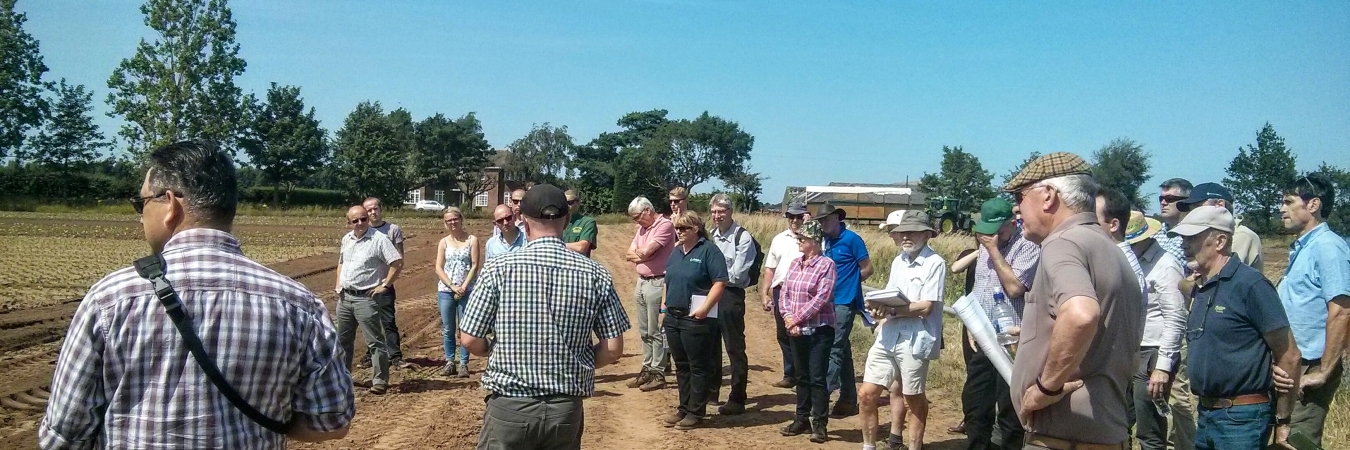Packed line-up for returning Farmer Cluster Conference
FARMERS, facilitators, advisors, policy makers and those passionate about wildlife will be heading to The Birmingham & Midland Institute for the second Farmer Cluster Conference on November 1st.
Developed by the Game & Wildlife Conservation Trust (GWCT), the Farmer Cluster concept is a plan to help farmers work more cohesively together in their locality, enabling them to collectively deliver greater benefits for soil, water quality and wildlife at a landscape scale.
A Farmer Cluster is designed to start life at a bottom-up, farmer level, under the guidance of a lead farmer. They devise their own conservation plans, helped by their own chosen conservation advisors, whom they already know and trust. Although the work is often supplemented by existing agri-environment schemes, several Farmer Clusters have set up with no funding.
When the idea was launched by GWCT’s chief executive Teresa Dent CBE, five clusters were established in the southern region, and now there are over 100 across England.
“Following the great success of the first Farmer Cluster Conference held in London last year, it became almost inevitable that we should organise a second conference in 2018,” said director of research and advisory services at GWCT Professor Nick Sotherton, who is chairing the morning session of the conference.
“The momentum behind the Farmer Cluster concept is really growing with the grateful support of Defra and Natural England.
“Held in Birmingham to network with farmers and facilitators from existing clusters, the emphasis will be on monitoring success, what, how and when.
“It promises to be a high energy event, so please do join us.”
The packed agenda, which runs from 10am to 4pm, is split into four sessions; the importance of farmer clusters, monitoring, farmer clusters and delivering ecosystem services and exploring the motivations behind farmer-led conservation.
Some of the confirmed speakers include Cathy Horsley, from the Bumblebee Conservation Trust, who will explain her role in farming and wild pollinators, farmer Rob Harvard will talk about Worcester Meadow Guardians and Adrian Bicker is giving a run-down on his renowned wildlife database called the Living Record.
GWCT staff including Roger Draycott will be telling delegates about the launch of the new Farmer Cluster website and forum, Jim Egan will be giving a run down on the Big Farmland Bird Count and Jess Brooks is discussing how to monitor wildlife on a farmer cluster, which she’s looking forward to doing.
“Monitoring is an important and rewarding part of being in a farmer cluster,” said Jess.
“Surveying priority species and habitats over time can show how effective conservation activities have been, but crucially it also encourages land managers, staff, family, friends and local people to open their eyes to things they’ve never noticed before and discover new passions.
“Helping farmer clusters with monitoring is one of many things a facilitator can do – alongside events organisation, group administration, training, advice, networking and fundraising.”
Tickets for the conference cost £45, which includes lunch and refreshments.
Book your place now >
About the Farmer Cluster idea
Unlike existing environmental schemes for farms, which are top-down and involve much red tape, GWCT’s scheme is voluntary and led by the farmers themselves.
They decide what wildlife they would like to encourage and appoint a lead farmer. They choose their own conservation advisor and set their own targets.
In one example, the South Wiltshire Farmland Conservation Project brings together groups of farmers to improve wildlife numbers and habitat on 450 square miles of farmland around Cranborne Chase AONB.
This started as a project to protect vulnerable birds, and widened its remit to include other species of wildlife, as well as protecting soil and water. The scheme will benefit rare butterflies, including the marsh fritillary, as well as 19 species of bumblebee.
Read full article